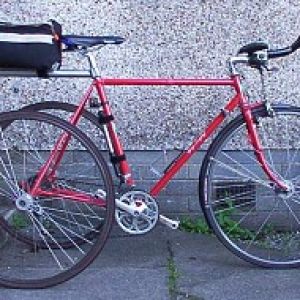Cognitive Ageing.
The bitter irony of yesterday’s blip was that today, our U3A lecture was about “Cognitive Ageing” by someone whose name I have forgotten. I jest, the gentleman leering at the audience is Professor Ian Deary who was talking about the Lothians’ birth cohort study of 1936 and, we actually had one of our members there who is a part of it. In 1947, every child in Scotland who was born in 1936 did an I.Q. test; now much as education experts rightly deride these tests as they don’t measure intelligence, they do measure something; precisely what is difficult to ascertain. While they are an abomination when it comes to deciding an individual child’s future, as a method of assessing the intelligence of stable populations they are the best tool we have.
In 2006, the 1,091 surviving residents of the Lothians who took the test were retested and were given a thorough medical examination, a task that took two years to complete and another one to analise the results; then they started all over again so that, every three years, they are all retested. The data is being used to work out what factors are involved in mental deterioration (or lack of it) with age. It seems that the main result is that if you were clever at the age of eleven, you are likely to be clever when you’re seventy - which isn’t surprising, but the interesting thing is determining which factors cause deviations from the norm. It turns out that most of the factors that were thought to help you keep your marbles: physical exercise, mental exercise, listening to Radio4, good diet, drinking wine as opposed to beer, and so on, are actually activities that you do because you are clever. Listeners to “More or Less” will have already seen this reversal in causation. The main exception seems to be smoking, you could think that this would fall into the same category, but smoking causes physical health problems that are associated with mental abilities - such as damaging the blood supply to the brain.
At the end of a very interesting talk, Professor Deary cycled the twelve miles home to Edinburgh through a light drizzle.

Comments
Sign in or get an account to comment.


